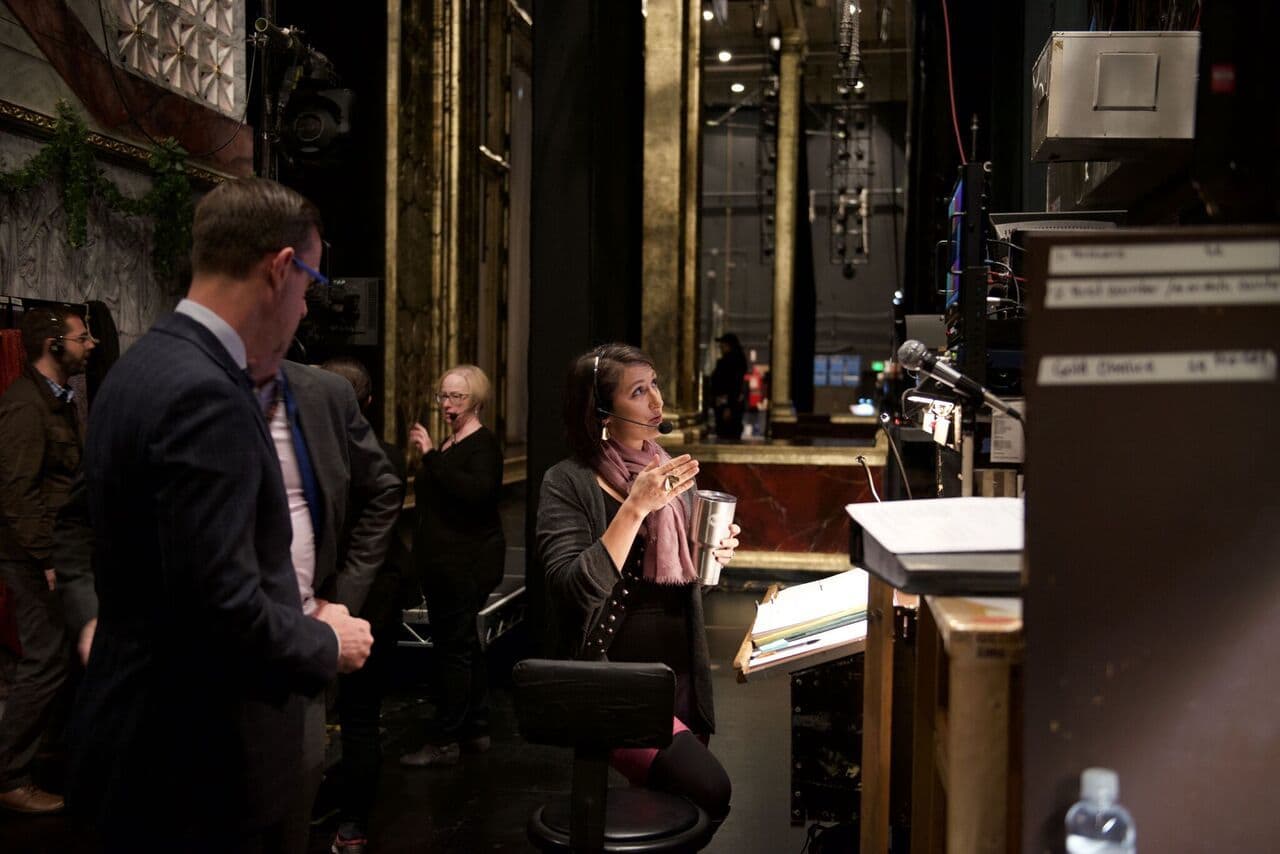The grandeur of opera isn’t limited to what’s happening onstage. To create something so large, it takes an equally large number of people: musicians, the maestro, singers, stagehands, carpenters, wigmasters, costumers, scenic designer, and the director. Right there, where all of this talent meets is one person: the production stage manager. And here at LA Opera, that person is usually Chelsea Antrim.

In other words, Chelsea and her team are “the communication hub for the show. We’re in charge of making sure important information gets passed on to everyone.”
This work begins up to a year in advance of a new production. To kick things off, Chelsea attends design presentations. At this stage, she’s figuring out what kind of resources she’ll need to keep everything running smoothly. Sometimes LA Opera puts on productions that have been staged before, whether at LA Opera or another company. In these cases, Chelsea looks through the notes from previous stage managers to get an idea of the challenges ahead.
One week before rehearsals start, Chelsea gathers her team of stage managers, assistant stage managers, and assistant directors to begin taking notes on their scores (that’s the lingo for their copies of the sheet music). They listen to a recording of the opera made by the production’s conductor and break the music down into 15-second intervals. They also meet with directors, designers, tech crews, and costume crews. From these conversations, they begin preparing detailed notes that will not only be a vital reference point for this production, but also a valuable resource for future stage managers.

Behind the scenes of LA Opera's 2019 The Clemency of Titus - Darrin Noble
Chelsea is right there through the whole rehearsal process, noting every single piece of information. We’re not just talking about a list of props. She’s also keeping track of everything and everyone that goes on and off the stage, which characters interact with them at which times, where they need to be and when. In other words, Chelsea and her team take notes on everything—all entrances, exits, costume changes, and what works best for the singers (#organizational goals).
The production stage manager’s job is far from over on opening night. During performances, Chelsea or another stage manager stands at the console backstage and calls cues. That means keeping track of everything that’s happening onstage and off using monitors, radios, and her marked-up score. Armed with a headset and microphone, she “calls” the show, giving verbal and visual cues for everything that needs to happen during the show. This includes lighting cues, projections, tech cues, paging singers to the stage, and giving five-minute warnings for wardrobe changes—everything that needs to happen to get everyone and everything onstage when they need to be. Frequently, she’s talking nonstop for the entire opera.
Chelsea describes the experience as “exhilarating”—fast-paced and action-packed. It may be high-pressure but, as she says, “when you nail it, nothing feels better.”
Chelsea’s work as the production stage manager illustrates just how many hardworking people it takes to bring opera onstage. Each role is vital to bringing our productions to life. And Chelsea sees her role as all about collaboration—one voice in the offstage chorus that’s just as important as the one that’s on stage. Ultimately, the joy in her job comes from “how many people care about telling a good story”—and that care is what brings this art form to us.
To support all of the dedicated members of LA Opera’s team, onstage and off, you can give at laopera.org/donate. With only 40% of our budget coming from ticket sales, we rely on our supporters to bring grand opera to life.








